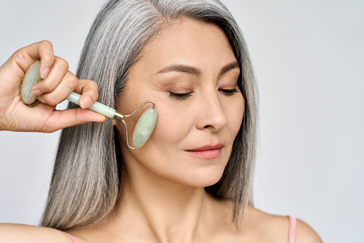The Benefits of Taking Multivitamins
Posted by Christopher Davalos on
Overview
In the modern world, it is basically impossible to go through your day without seeing an advertisement that promotes a certain vitamin or dietary supplement.
Some advertisers take this further by misleading customers about the benefits of their products and how they could improve the quality of life in endless ways.
Due to the poor regulation of these products, it is extremely challenging to determine whether a supplement is truly beneficial or just another scam.
Note that when you see a product labeled as a multivitamin, it doesn’t necessarily mean that it only contains vitamins since you could also find minerals, enzymes, and other substances.
For this reason, we decided to write this article so we can cover the most common vitamins and supplements, as well as the benefits you can expect to reap.
Why do you need vitamins and minerals?
Inside every cell of the body, hundreds of biochemical reactions take place every second.
These reactions serve multiple purposes, including the synthesis of necessary compounds that intervene with metabolism, breathing, and other physiological functions.
Furthermore, metabolic cascades need substrates and enzymes as mediators, such as vitamins, minerals, enzymes, and coenzymes.
While all vitamins are involved in some biochemical reactions, not all supplements serve the same purpose since we may simply take them to improve digestion (e.g., fiber supplements).
The substances to look for in a multivitamin
Vitamin A
Vitamin A is an umbrella term used to describe numerous compounds known as retinoids, which mediate many physiological and biochemical reactions.
By interfering with the action of several hormones, such as T4, insulin, and cortisol, vitamin A has diffused metabolic effects on the cell, including a vital role in the different stages of wound healing.
This compound stimulates the growth of epithelial cells, fibroblasts, granulation tissue, angiogenesis, and collagen synthesis, which are all crucial steps for wound healing and the reduction of scarring surface area.
In one study, researchers found that local and systemic supplementation with vitamin A increases dermal collagen deposition, accelerating wound healing in acute injuries and improving its appearance in chronic scars.
Vitamin C
The body cannot synthesize vitamin C. Consequently, the unique source to get vitamin C is through dietary intake (e.g., fruits, vegetables). Sadly, the vast majority of the general population does not get sufficient amounts of this vital compound through their diet, hence the need to take supplements.
Vitamin D
Vitamin D is an important compound that ensures numerous biochemical reactions to keep your body functioning.
The unique feature of vitamin D is that it exerts its action like a hormone rather than a vitamin, which allows it to reach multiple organs and provide many health benefits.
In fact, every cell of the body contains vitamin D receptors in their nuclei.
In general, people get vitamin D through dietary intake or via complex biochemical cascades that involve the skin, liver, and kidneys.
Unfortunately, many people are deficient in vitamin D, which augments the risk of several maladies.
Here are some benefits of taking vitamin D supplements:
- Increase bone mineral density
- Boosted weight loss and basal metabolic rate
- Optimized cardiovascular functioning
Iron
Iron is an essential mineral that’s mostly associated with the production of red blood cells. However, iron also intervenes in several other biochemical functions, including immune optimization, energy production, and wound healing.
Copper
Copper mainly aids wound healing by promoting angiogenesis and producing stabilization extracellular matrix proteins.
Researchers believe that introducing copper to wound dressings could potentially accelerate the process of acute wound healing.
Zinc
Zinc is a vital mineral that ensures numerous biochemical reactions and aids in the formation of connective tissue.
Our cells cannot produce zinc, which leaves dietary intake as the exclusive source for this mineral.
Here are some benefits of zinc:
- Optimizes the immune system
- Speeds up the production of red blood cells
- Protects the cells against oxidative stress
Coenzyme Q10
Coenzyme Q10 is a dietary supplement that increases the rate of mitochondrial biochemical reactions to produce Adenosine Tri-Phosphate (ATP).
For reference, ATP for the human body is like gas for your car. Both entities cannot survive without fuel.
Coenzyme Q10 is a crucial element of several metabolic cascades that include the three major macronutrients (e.g., carbohydrates, protein, fat).
Takeaway message
Vitamins, minerals, and enzymes all play a role in the optimal function of our cells. Each of these compounds has a specific role to fulfill. Unfortunately, deficiencies can lead to severe complications.
Hopefully, this article managed to shed some light on the importance of supplying your body with essential supplements without being subject to misleading advertisements.

Mike Miryala, Head Pharmacist at CoBionic
You might like these:
Vibrance Daily Greens
- Organic, Vegan Superfood Mix of 50+ Fruits, Vegetables, Probiotics, Prebiotic Fiber, Herbs and Antioxidants and simple to mix with any drinks
- Supports bone, joint and heart health
- Improves digestion and gut health
- Boosts & strengthens the immune system
Krill Force
- Highly absorbable, tasteless Krill Oil loaded with Omega-3s and antioxidants
- Reduce Chronic Inflammation, Arthritis and Joint Pain
- May Improve Blood and Heart Health
- Support Better Brain Health
If you have any questions about CoBionic products, please don’t hesitate to ask our helpful customer support team here.







